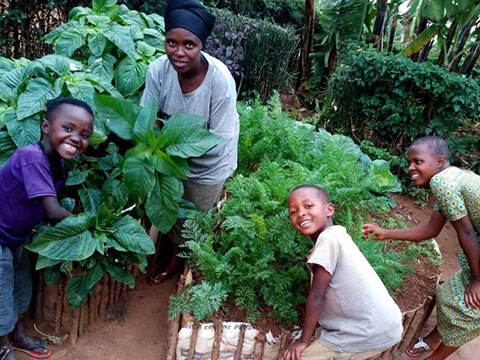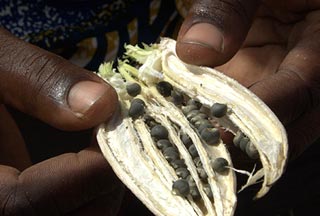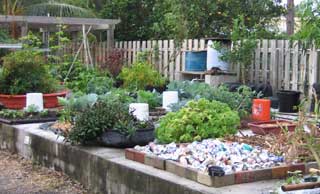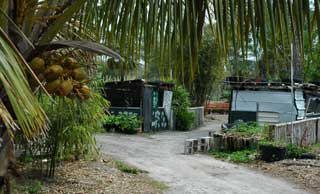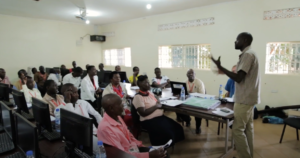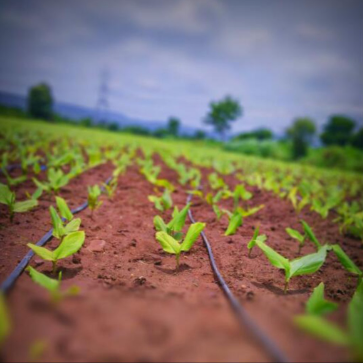Crop yields are always an important concern for small-scale farmers. In the face of growing environmental and economic pressures, finding sustainable methods to increase crop yield is vital for success into the foreseeable future. This article explores five innovative approaches that not only enhance productivity but also ensure long-term sustainability.
Precision Irrigation Systems
One of the most effective ways to increase crop yield is through precision irrigation systems, such as drip irrigation and soil moisture sensors. These technologies ensure that water reaches the plant roots directly, minimizing waste and optimizing plant health. Precision irrigation leads to significant improvements in water efficiency, which is crucial in areas prone to drought.
Cover Cropping Techniques
Cover crops like clover and alfalfa play a crucial role in sustainable agriculture. They protect and enrich the soil by fixing nitrogen, suppressing weeds, and maintaining soil moisture. When used effectively, cover cropping can lead to healthier soil and increased yields, all while reducing the need for chemical fertilizers.
Additionally, integrating cover crops into crop rotations can significantly reduce soil erosion and improve soil structure, promoting better water infiltration during rainy seasons. This practice not only supports biodiversity by providing habitat for beneficial insects and other wildlife but also helps in capturing carbon from the atmosphere, contributing to climate change mitigation.
Polyculture and Crop Rotation
Diversifying crop production through polyculture and rotating crops annually helps maintain soil health and reduces vulnerability to pests and diseases. Polyculture involves growing multiple crop species in the same space, such as the traditional “Three Sisters” method where corn, beans, and squash complement each other by utilizing natural synergies—corn provides a structure for the beans, beans fix nitrogen in the soil, and squash retains soil moisture. This strategy not only improves soil structure but also enhances farm biodiversity, leading to more resilient crop systems and increased productivity.
Crop rotation plays a crucial role in breaking the cycle of pests and diseases by alternating the types of crops planted in each field, thereby depriving pests of their preferred host plants. Furthermore, this practice helps to balance the nutrients in the soil, as different crops have varying nutrient requirements and contributions, ensuring sustainable soil fertility and reducing the dependency on chemical inputs.
Green Manuring
Green manuring involves growing plants specifically to be plowed back into the soil. Plants like mustards and legumes are grown to add organic matter and nutrients back into the earth, enhancing soil fertility and structure. This method is a natural way to enrich the soil and boost subsequent crop yields without external inputs.

Vertical Farming for Space Efficiency
For urban farmers or those with limited space, vertical farming offers a viable solution. By growing crops upwards rather than outwards, vertical farming maximizes space and can significantly increase yield per square foot. This technique is especially useful for high-value, small-footprint crops like herbs and leafy greens.
Conclusion
By adopting these sustainable farming techniques, farmers can maximize their crop yields while ensuring the longevity and health of their land. Each method offers a way to tackle specific challenges faced by modern farmers, from water scarcity to limited space, making them invaluable in the quest for sustainable agriculture.
–
ECHO provides hope against hunger around the globe through agricultural training and resources. As a Christian technical networking and resourcing organization, ECHO builds a diverse, global network and serves that network by sharing validated contextualized agricultural options with technical excellence. ECHO’s goal is to serve its network members to advance food security and sustainable livelihoods. ECHO’s North American Regional Impact Center is located in Fort Myers, Florida with a global presence through four Regional Impact Centers in the USA, Thailand, Tanzania, and Burkina Faso. For more information about ECHO call 239-543-3246 or visit echonet.org or ECHOcommunity.org.
